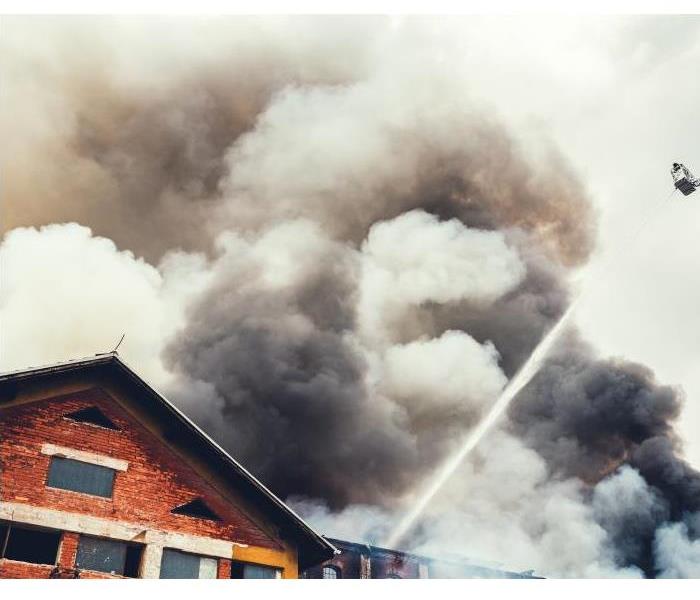How Smoke from Fires Can Affect Your Health
9/13/2022 (Permalink)
Smoke may smell good, but it's not good for you. While not everyone has the same sensitivity to wildfire smoke, it’s still a good idea to avoid breathing smoke if you can help it. And when smoke is heavy, such as can occur in close proximity to a wildfire, it’s bad for everyone. Smoke is made up of a complex mixture of gases and fine particles produced when wood and other organic materials burn. The biggest health threat from smoke is from fine particles. These microscopic particles can penetrate deep into your lungs. They can cause a range of health problems, from burning eyes and a runny nose to aggravated chronic heart and lung diseases. Exposure to particle pollution is even linked to premature death.
Some people are more at risk
It’s especially important for you to pay attention to local air quality reports during a fire if you are
a person with heart or lung disease, such as heart failure, angina, ischemic heart disease, chronic obstructive pulmonary disease, emphysema, or asthma.
an older adult, which makes you more likely to have heart or lung disease than younger people.
caring for children, including teenagers, because their respiratory systems are still developing, they breathe more air (and air pollution) per pound of body weight than adults, they’re more likely to be active outdoors, and they’re more likely to have asthma.
a person with diabetes, because you are more likely to have underlying cardiovascular disease.
a pregnant woman, because there could be potential health effects for both you and the developing fetus.
How to tell if smoke is affecting you
High concentrations of smoke can trigger a range of symptoms.
Anyone may experience burning eyes, a runny nose, cough, phlegm, wheezing, and difficulty breathing.
If you have heart or lung disease, smoke may make your symptoms worse.
People with heart disease might experience chest pain, palpitations, shortness of breath, or fatigue.
People with lung disease may not be able to breathe as deeply or as vigorously as usual and may experience symptoms such as coughing, phlegm, chest discomfort, wheezing, and shortness of breath.
Protect yourself! It’s important to limit your exposure to smoke - especially if you are at increased risk for particle-related effects. Here are some steps you can take to protect your health: If you have heart, vascular, or lung disease, including asthma, talk with your health care provider. Prepare for fire season if you live in a fire-prone area. If you have heart, vascular, or lung disease, including asthma,talk with your health care provider before fire season to make plans. Discuss when to leave the area, how much medicine to have on hand, and your asthma action plan if you have asthma. Have a several-day supply of nonperishable foods that do not require cooking. Cooking - especially frying and broiling - can add to indoor pollution levels.
Call SERVPRO to put an air cleaner in your home. Air cleaners can help reduce particle levels indoors. They will make the house smell brand new.






 24/7 Emergency Service
24/7 Emergency Service
